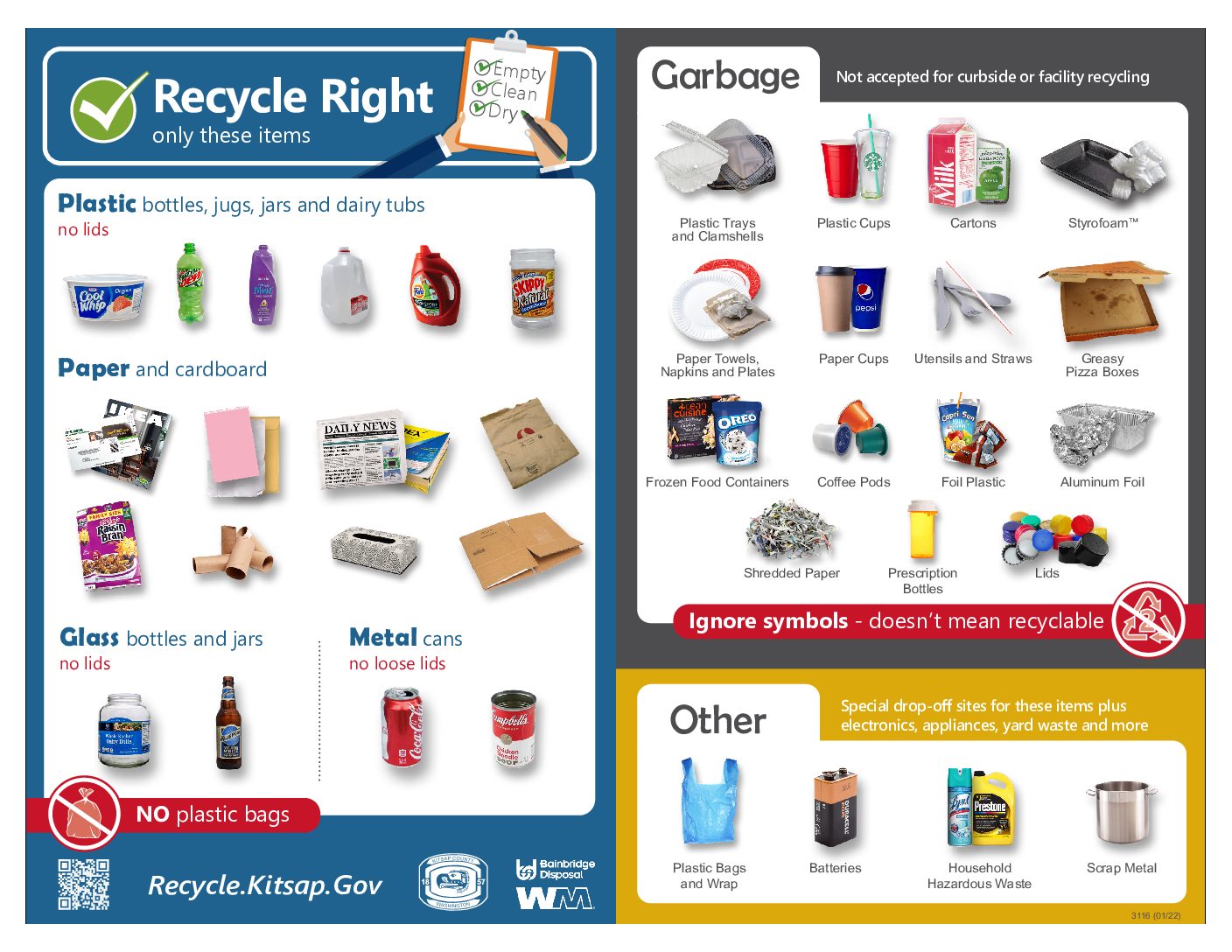
Mixed recyclables are collected curbside through a subscription service with Bainbridge Disposal or may be taken to the Bainbridge Disposal Transfer Station. At the transfer station, garbage or recycling is $13 the first can and $5 for each additional can.
Make sure containers are RINSED and EMPTY; paper should be dry.
Recycle loose, NEVER in a plastic bag.
These items are accepted in the Bainbridge recycling program:
Aluminum
- cans – Do not crush. Flattened cans may end up in paper bales and then are thrown away at the paper mill.
NO aluminum foil or food trays
Glass
- bottles & jars (no lids)
NO drinking glasses
NO window panes
Glass food storage containers – If you can’t reuse or gift them, put in the Zero Waste bin outside the Marge Williams Center, 221 Winslow Way West.
Metal
- food cans
NO scrap metal (goes in the scrap metal dumpster at the Bainbridge Disposal Transfer Station)
Paper
- junk mail
- magazines and catalogues
- newspaper
- copy paper
- construction paper
- wrapping paper (not embossed, metallic foil or glittery)
- paper or frozen food boxes (no liners, PLEASE flatten)
- paper bags
- phone books
- milk and juice cartons (not Tetrapaks)
NO paper cups, plates or bowls (put in trash)
NO non-tearable paper (put in trash)
NO stickers or sticker backing (put in trash)
NO shredded paper (put in compost if free of plastic)
NO greasy pizza boxes (put in compost)
NO tissue paper (put in compost)
NO tissues, paper towels or paper napkins (put in compost)
Plastics
- bottles & jugs & jars (put caps in trash)
- dairy tubs (no lids)
Click the button above for the Bainbridge Disposal/Kitsap County poster of what is accepted in curbside recycling and in the mixed recycling container (although there is a separate container for cardboard) at the Bainbridge Disposal Transfer Station.
Watch this 10-minute video made by the Association of Mission-Based (nonprofit) Recyclers that will open your eyes as to why our recycling is so contaminated.
Last updated 4/3/2024
